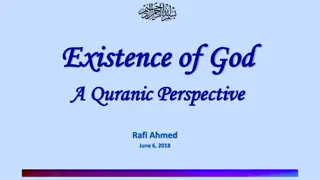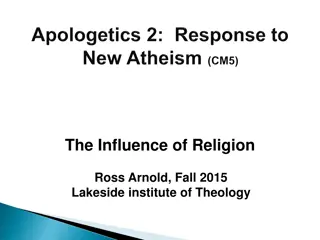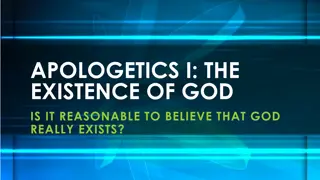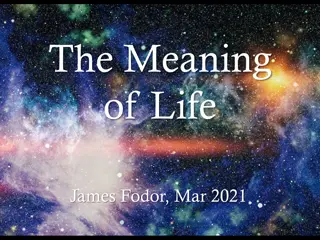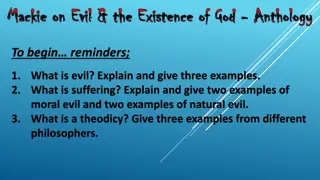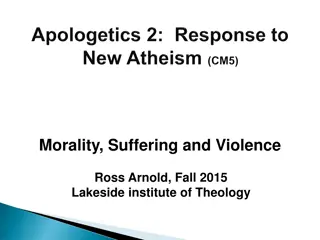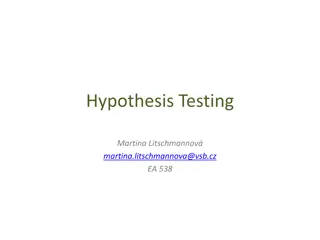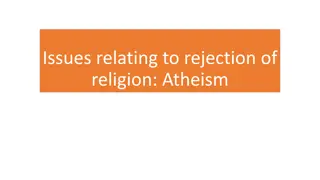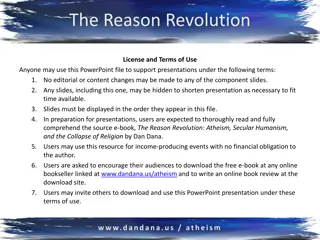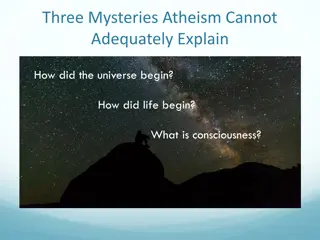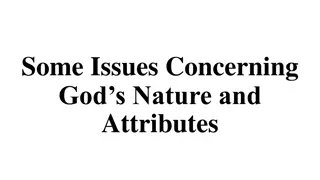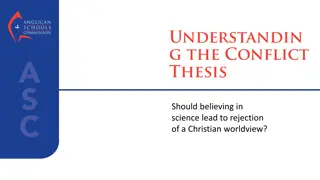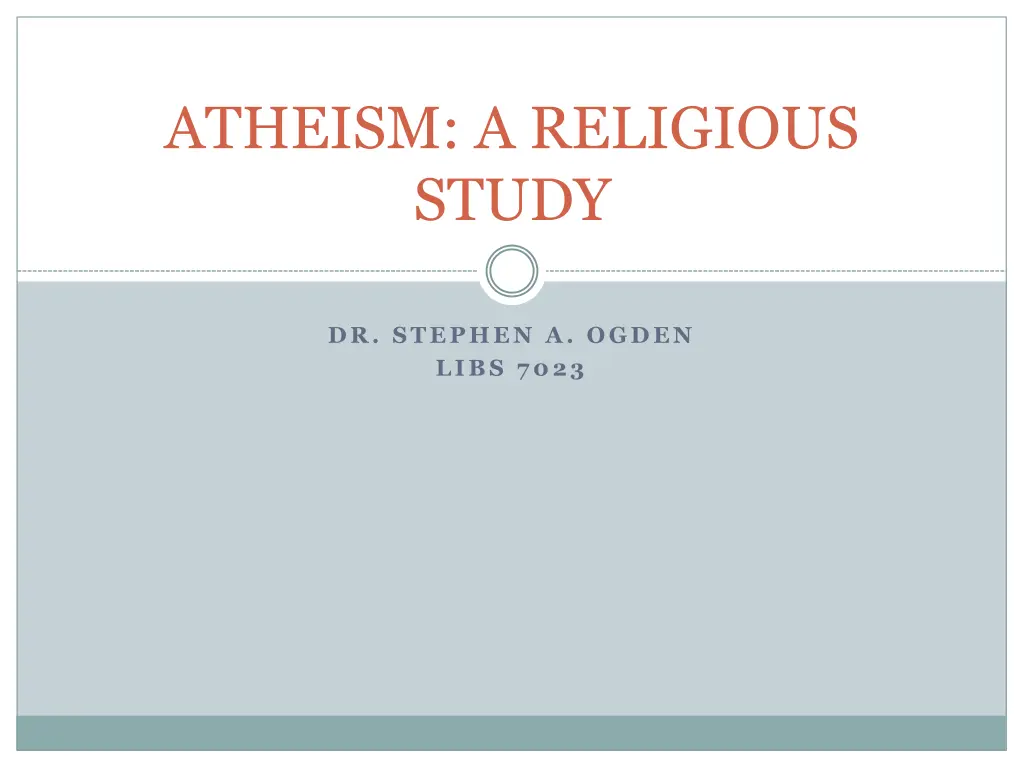
Understanding Different Concepts of Divinity in Religious Studies
Explore various perspectives on the nature of gods and divinity, ranging from atheism to monotheism, deism, polytheism, and pantheism. Learn how different belief systems perceive the divine entity, its characteristics, and its role in human affairs.
Download Presentation

Please find below an Image/Link to download the presentation.
The content on the website is provided AS IS for your information and personal use only. It may not be sold, licensed, or shared on other websites without obtaining consent from the author. If you encounter any issues during the download, it is possible that the publisher has removed the file from their server.
You are allowed to download the files provided on this website for personal or commercial use, subject to the condition that they are used lawfully. All files are the property of their respective owners.
The content on the website is provided AS IS for your information and personal use only. It may not be sold, licensed, or shared on other websites without obtaining consent from the author.
E N D
Presentation Transcript
ATHEISM: A RELIGIOUS STUDY DR. STEPHEN A. OGDEN LIBS 7023
REMINDER Keep in mind that, God is not a necessary component of religion. Church (temple, mosque, etc.), priests (ministers, imams, etc.), written doctrines, services, and all ecclesiastic form, are not a necessary component of religion. Quakers (who congregate in meeting halls and wait for God to cause them to quake House Church Protestantism (incl. China) Nagasaki Roman Catholics (16thC. Japan)
Atheism A-Theism (Gr. = God.) By its name, Atheism defines itself: antagonistically by what it is against , or negatively, by what it denies. in an irony, a historically-powerful line of theology exists called negative theology a description of God by what He is not. Leaves open, and questionable, what it is for
MONOTHEISM God is an independently existing Being with person (agency, feelings, cognition, justice): an active party in the life and affairs of the World (supernatural events) known by revelation. Monotheistic Religions: Islam Judaism Christianity Qualities: Love Justice Creativity Omnipotence Omniscience Omnipresence
DEISM God is an independently existing Being with person (agency, feelings, cognition, justice) who is not an active party in the life and affairs of the World (natural events.) Revelation is through Nature and Reason. Qualities: Creativity Distant Passive Philosophical Knowable through Scientific study of nature & Reason Knowable though conscience. Deistic Religions: Stoicism (Roman) Freemasonry Some lapsed Christians & Jews Voltaire, Rousseau, American Founding Fathers (Thomas Jefferson, Benjamin Franklin), Spinoza Several Philosophers & schools of Philosophy Aristotle, Locke, Hobbes
POLYTHEISM There are many Gods, small and great; supernatural Beings who interact with human affairs, and may or may not respond to human appeals. Qualities: Individual Humans enlarged Personalised superhero Capricious (non-static) Fecund and variable Polytheistic Religions: Manichaeism Sikhism ? Hinduism Pagan Greek, Norse, Roman, etc.
PANTHEISM God is everywhere and everything; all is God. God and Nature are indistinguishable, where God-Nature is animate and purposeful. Mind is more real than Matter . Qualities: Quiet, calm Impersonal Vital Sacred Unifying Spiritual (adds a quiddity to nature) Pantheistic Religions: Buddhism Daoism ( the Way ) Animism (e.g. Shinto, Druidism, Wicca)
A-THEISM Dogmatic claim that no form of theos exists. Atheism at present asserts that only matter exist. Qualities: Science Reason Materialism Phenomena Ontological Minimalism Humanist Atheist Religions: Pre-Socratic Greeks Protagoras, Democritus, Positivism (e.g. Fr. Auguste Comte) Confucianism Jainism Western (explicit) Atheism post-19thC. Effectively, Occam s razor is Atheism s Prime Doctrine: William of Ockham (England, 13thC.): do not multiply theories beyond necessity. In modern Atheism, the simpler theory is the more correct. Example: Baron d'Holbach (1772) "All children are born Atheists; they have no idea of God."

